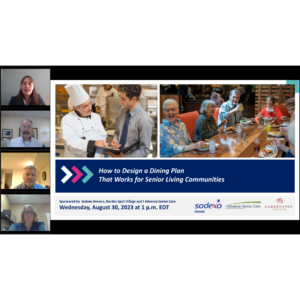Age not a good indicator of health, study finds
Age really is just a number.
Researchers found chronological age alone isn’t indicative of seniors’ health and well-being, according to a new study published in the journal Proceedings of the national Academy of Sciences.
"The new comprehensive model of health identifies constellations of health completely hidden by the medical model and reclassifies about half of the people seen as healthy as having significant vulnerabilities that affect the chances that they may die or become incapacitated within five years," says Martha McClintock, lead study author and University of Chicago biopsychologist in a press release.
Researchers also found that:
- Cancer itself is not related to other conditions that undermine health.
- Poor mental health affects one in eight older adults and undermines health in previously unrecognized ways.
- Obesity seems to pose little risk to older adults with excellent physical and mental health.
- Sensory function and social participation are critical to sustaining or can undermine health.
- Breaking a bone after age 45 is a predictor of future health issues.
- Men and women have different patterns of health and well-being as they age
- Mobility is one of the best markers of well-being.
The traditional biomedical model of health is measured by cholesterol levels and risk of heart disease, cancer, diabetes and high blood pressure. Researchers found a more comprehensive model that measured psychological well-being, sensory function, mobility and health behaviors better predicts mortality.
"From a health systems perspective, a shift of attention is needed from disease-focused management, such as medications for hypertension or high cholesterol, to overall well-being across many areas," says study researcher and geriatrician William Dale.
The longitudinal survey of 3,000 people aged 57 to 85 was conducted by the independent research organization NORC at the University of Chicago as part of the National Social Life, Health, and Aging Project (NSHAP) that is supported by the National Institute on Aging.

Nicole was Senior Editor at I Advance Senior Care and Long Term Living Magazine 2015-2017. She has a Journalism degree from Kent State University and is finalizing a master’s degree in Information Architecture and Management. She has extensive studies in the digital user experience and in branding online media. She has worked as an editor and writer for various B2B publications, including Business Finance.
Related Articles
Topics: Clinical











